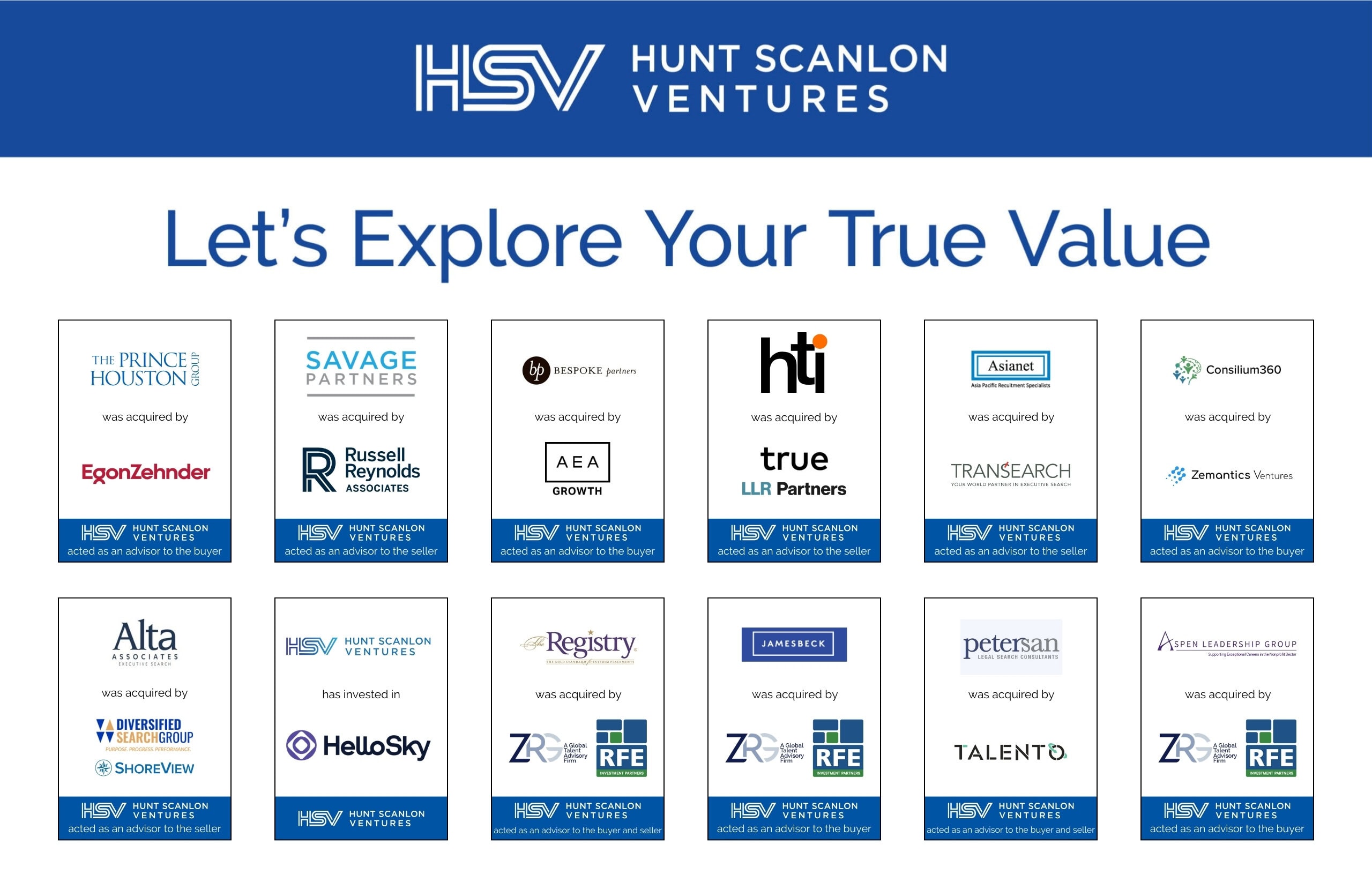Generational transition is reshaping the professional services sector in profound ways. As aging founders confront questions of succession and liquidity, and private equity circles with record levels of dry powder, the stakes have never been higher. Trust, leadership, and culture now sit at the center of deal value, and missteps can erase it overnight. Evan Berta, an associate at Hunt Scanlon Ventures, takes a closer look with James O’Dowd, CEO and founder of Patrick Morgan, who shares his perspectives on this pivotal shift and explores what it means for talent and leadership strategy.
Jay Alix, the founder of AlixPartners, has teamed up with veteran PE investor David Tayeh to launch Tayeh Capital Group, a $400 million fund aimed at family-owned professional & business services firms facing generational transition.
The bet, said James O’Dowd, founder and CEO of Patrick Morgan, is that “aging founders, lower valuations, and stuck portfolio companies will create a wave of forced sellers.”
It is a compelling narrative, and one grounded in demographic reality. Across the U.S. and Europe, founder-led professional services firms are reaching inflection points. “Succession is looming, clients are consolidating, and founders are weighing hard questions about liquidity and legacy,” said Evan Berta, an associate at Hunt Scanlon Ventures.
But Mr. O’Dowd points to an interesting paradox: “Private equity is already sitting on record amounts of dry powder at a time when exits are frozen, fundraising has slowed, and the pipeline of truly investable mid-sized platforms is getting tighter, not looser.”
In other words, competition for the right firms is intensifying, even as the supply of scalable assets remains constrained.
Professional services are trust-driven businesses, where equity value is inseparable from leadership credibility. “A generational transition in a services firm is not just a balance sheet exercise, it’s a cultural handover, a client relationship transfer, and a leadership test,” said Mr. O’Dowd.
Talent, not just capital, becomes the defining measure of whether value is preserved or destroyed.
“The real scarcity isn’t capital; it is access to and trust with founders ready to scale with an outside partner.”
Mr. Berta recently sat down with Mr. Dowd to discuss the shifting dynamic between founders and investors. From Mr. Dowd’s vantage point, founder inquiries are at an all-time high as leaders ask, “Who should I trust with my firm?” and “How do I prepare for a sale process?”
At the same time, interest from private equity seeking proprietary deal flow has surged. As Mr. O’Dowd noted, “The real scarcity isn’t capital, it is access to and trust with founders ready to scale with an outside partner.”
Related: Private Equity’s Winners Play A Different Game
Strategic Outlook & Market Dynamics

James, discuss Tayeh Capital’s bet on founder-led firms facing succession. How significant is the demographic shift, and what makes professional services firms especially vulnerable right now?
The demographic shift is enormous and accelerating. Many great, small to mid-sized consulting, accounting, and advisory businesses built between the late 1980s and early 2000s are now led by founders in their late fifties or early sixties. These firms are reaching a natural inflection point: succession planning has often lagged behind growth, institutional equity is limited, and the next generation is hesitant to “buy in” under the old partnership model. That combination makes the sector particularly exposed.
“The most successful transitions treat succession as a cultural handover, not just a financial event.”
You also pointed out the paradox of abundant dry powder and limited investable assets. How do you see that imbalance shaping competition among funds in the near term?
There’s record capital chasing a shrinking number of credible, founder-led platforms with true enterprise value. Differentiation now comes down to access and trust, not price. The best transactions are often proprietary, built over years of dialogue. In that context, funds that lead with insight and empathy for the founder journey will outcompete those that lead only with capital. Those that don’t will overpay and underperform in their investments.
Trust, Leadership & Cultural Handovers
You described generational transition as “a leadership test.” Can you expand on how leadership credibility and talent continuity impact enterprise value in these transactions?
In professional services, value walks out the door every night. When a founder exits, the remaining leadership team, client trust, and ability to attract as well as retain top talent become the real determinants of enterprise value. The most successful transitions treat succession as a cultural handover, not just a financial event.
Founder & Investor Perspectives
For PE sponsors, what separates those who succeed in building founder trust from those who struggle?
The PE sponsors who succeed act more like advisors than financiers. They take time to understand the founder’s legacy, the psychology of leadership transition, and communicate incredibly well with the remaining partner group. Those who struggle usually underestimate the emotional dimension, they treat the process as a transaction and lose credibility before the ink is dry.
You mentioned founder inquiries are at an all-time high. What are the most common questions you’re hearing from leaders preparing for succession?
Obviously, founders want to know how best to prepare their business for a sale and maximize enterprise value. But, just as importantly, they’re asking: “Who can I trust to carry this forward?” and “What happens to my people and culture?” Liquidity matters, but legacy matters more.
On the investor side, what do you think distinguishes PE firms who can break through the competition for these deals?
Authenticity and specialization. Founders can tell within minutes whether a fund truly understands their business. They invest years in getting to know the people within the business. What’s more, the best investors bring a sector-specific value-creation playbook, a credible network of leadership talent, and a genuine respect for the craft of the business. Those qualities cut through a very crowded market.
Article By

Evan Berta
Evan Berta is Editor-in-Chief of ExitUp, the investment blog from Hunt Scanlon Ventures designed for professionals across the human capital M&A sector. Evan serves as an Associate for Hunt Scanlon Ventures, specializing in data analysis, market mapping, and target list preparation.






